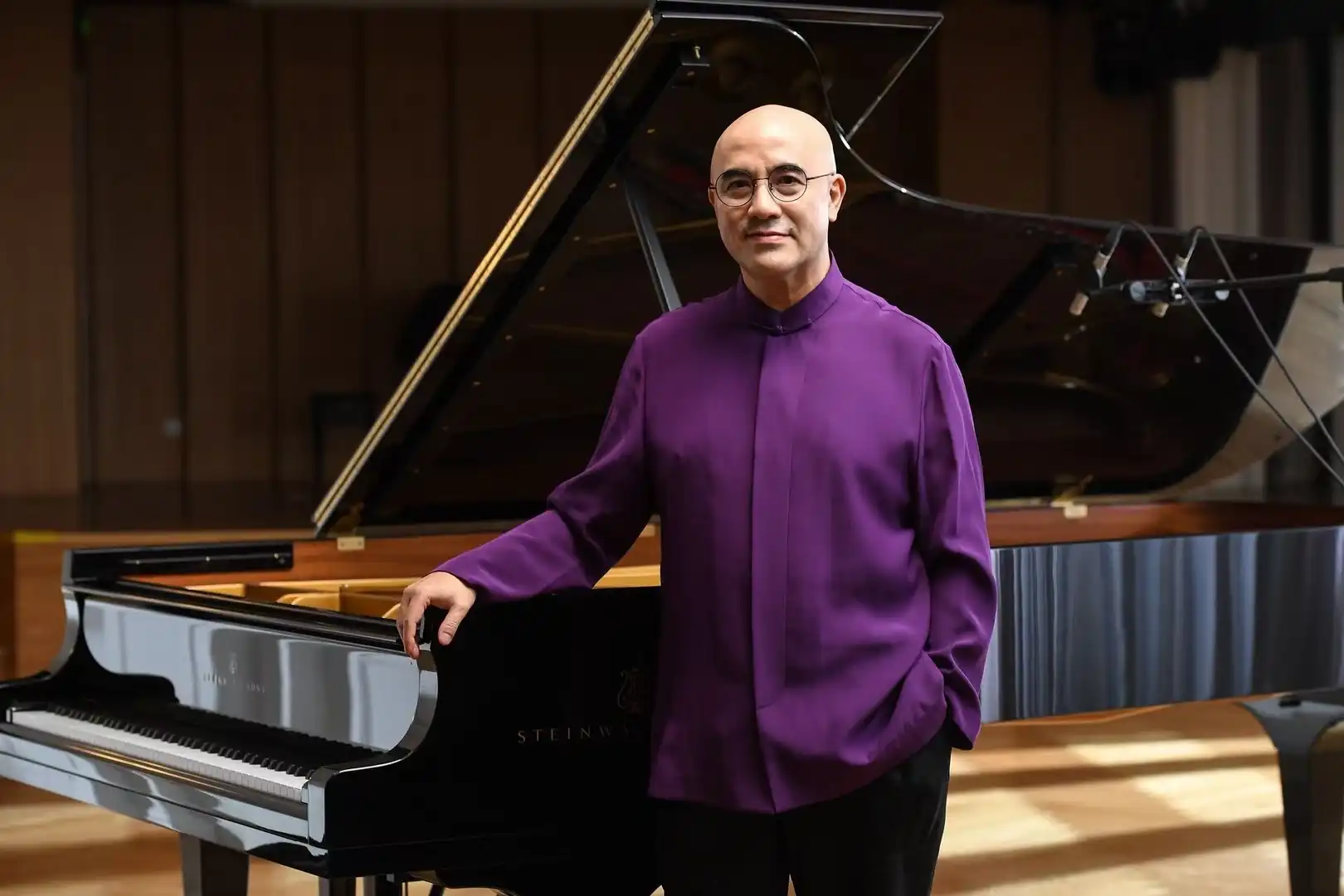World-Renowned Pianist Kong Xiangdong to Join NYU Shanghai Faculty

Photo by Nicole Chen
Internationally acclaimed pianist Kong Xiangdong will join New York University Shanghai’s faculty, bringing with him a lifetime of global performance, cultural exchange, and dedication to musical learning that spans decades and continents.
Kong first rose to prominence at just 17 when he became the first Chinese pianist sent by the government to represent China at Moscow’s prestigious Tchaikovsky Competition after a 24-year hiatus caused by the Sino-Soviet split. That debut marked the start of an international career that took him to more than 40 countries by the age of 30, performing, competing, and teaching.
“Ever since leaving the country at 17, I feel the vastness of the world,” he said. “When I see music, I think of the world — how as much as there are different people, there are as many different kinds of music. Music evokes every individual’s deepest feelings from the heart.” Now 57, Kong maintains a disciplined routine of six to eight hours of daily practice.
“I can confidently say in my lifetime I enjoy practicing right now the most,” he said. “When I was young, I practiced with some shortcuts. But now I’m more focused because I can feel how short life is. So, I often say these eight words: 人生很短,音符很長 — life is short, but the notes are long.”
Kong attributes much of his artistic development to the people who shaped his early life — his mother, teachers, and mentors. “Every individual, our family members, close friends, partners, students, peers, are all important mirrors in adolescence,” he said. “They can illuminate, and through their attitude toward us, we can see our own identities. I’m thankful for all the times I interacted and communicated with other people, because a lot of the time it’s once in a lifetime — but those meetings refuel us and keep us running on the track of life.”
His approach to music, he said, has evolved with age. “Now I think I should play more for myself. Slow practice is the most important — it’s the basic and essential thing,” he said. “Only by practicing slowly, almost like with a magnifying glass, can you focus on the composer’s details, colors, and meanings. Especially the composer’s own stages and scenes of life.”
Across his repertoire, Kong finds fascination in every style and era. “Every style and time period of music is fascinating,” he said. “I like playing one composer’s repertoire, but I also like playing a mix because each one gives me a different mood.”
Kong’s long relationship with music also guided him through years of personal struggle. Reflecting on an eight-year battle with depression, he said music became both a mirror and a medicine. “A lot of the downturned times, music becomes a healing power. It becomes an antidote,” he said. “So, I say, music is love. Studying music is like studying love — to feel it, to experience it, to explore it, and to share it.”
Even during that period, Kong continued to learn. “In this pause, I caught up on a lot of things I didn’t have time for: thinking, reflecting, experiences, trying new things, downloading hundreds of thousands of apps, learning technology, coding, and even my daughter’s undergraduate courses at UCLA,” he said. “As long as you’re learning, there is nothing wasted.”
As he prepares to join NYU Shanghai’s faculty, Kong said he views this next chapter as both an honor and a renewal. “Integrating into NYU Shanghai’s faculty is a big honor and highlight of my life,” he said. “I expect to learn a lot from the entire faculty, not just the music department, and hope to contribute alongside them to bridging education.”
He also hopes to build new musical connections with students and colleagues on campus. “I hope to add more music-oriented activities after joining the faculty and walk into the community with other professors and students to show more people the future of NYU Shanghai and let them see the progress we will make,” he said.
For Kong, music remains a lifelong companion — one that continues to challenge, heal, and inspire. “No matter who we meet, or what we experience in life, we may grow tired of things or view them differently,” he said. “But I hope that all younger people, including those at NYU Shanghai, let music be part of their life. Just because you like music doesn’t mean it has to be your profession — but loving music is a must.”